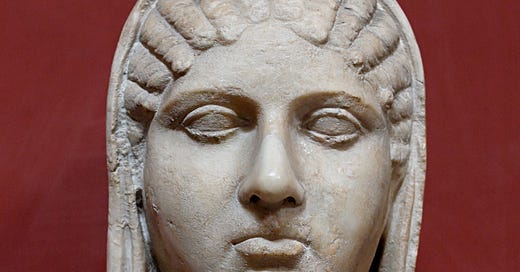My 2019 book Socrates in Love began as an investigation into how a young Athenian man became the thinker credited with starting off the Western tradition of philosophy. In the course of writing the book, I puzzled over the one person Socrates claims taught him something he can claim that he knows. Diotima in Plato’s Symposium was a “clever woman” who taught him, he says, the truth about love.
Diotima is generally supposed to be a fiction - who could have taught Socrates anything, let alone a woman? But another dialogue (Menexenus) actually shows a real woman, Aspasia of Miletus, instructing Socrates. Aspasia was known to be a “clever woman”, and was recorded as having held salons in which she spoke about love and marriage to Athenians including Socrates.
Aspasia eventually married Pericles, the leading politician of Athens, a man twice her age. He was popularly nicknamed “Zeus” after the chief of the gods, because of his dominance and thundering oratory (Zeus wielded a thunderbolt). Pericles was said to have accorded Aspasia excessive honour. The name ‘Diotima’ means “honoured by Zeus”. Surely Plato had Aspasia in mind. And if Aspasia taught Socrates some of the ideas present in Diotima’s doctrine of Love, she should be credited with being someone who inspired Socrates to become the kind of philosopher he became.
Perhaps a woman, after all, is at the root of the Western philosophical tradition.
Donald Robertson recently interviewed me about the book and these ideas:






It's interesting to think that the great Plato was inspired by a woman. Women have always played an indispensable role in Western civilization and culture.
kind of weird but I still always think of Diotoma from Musil rather than Socrates